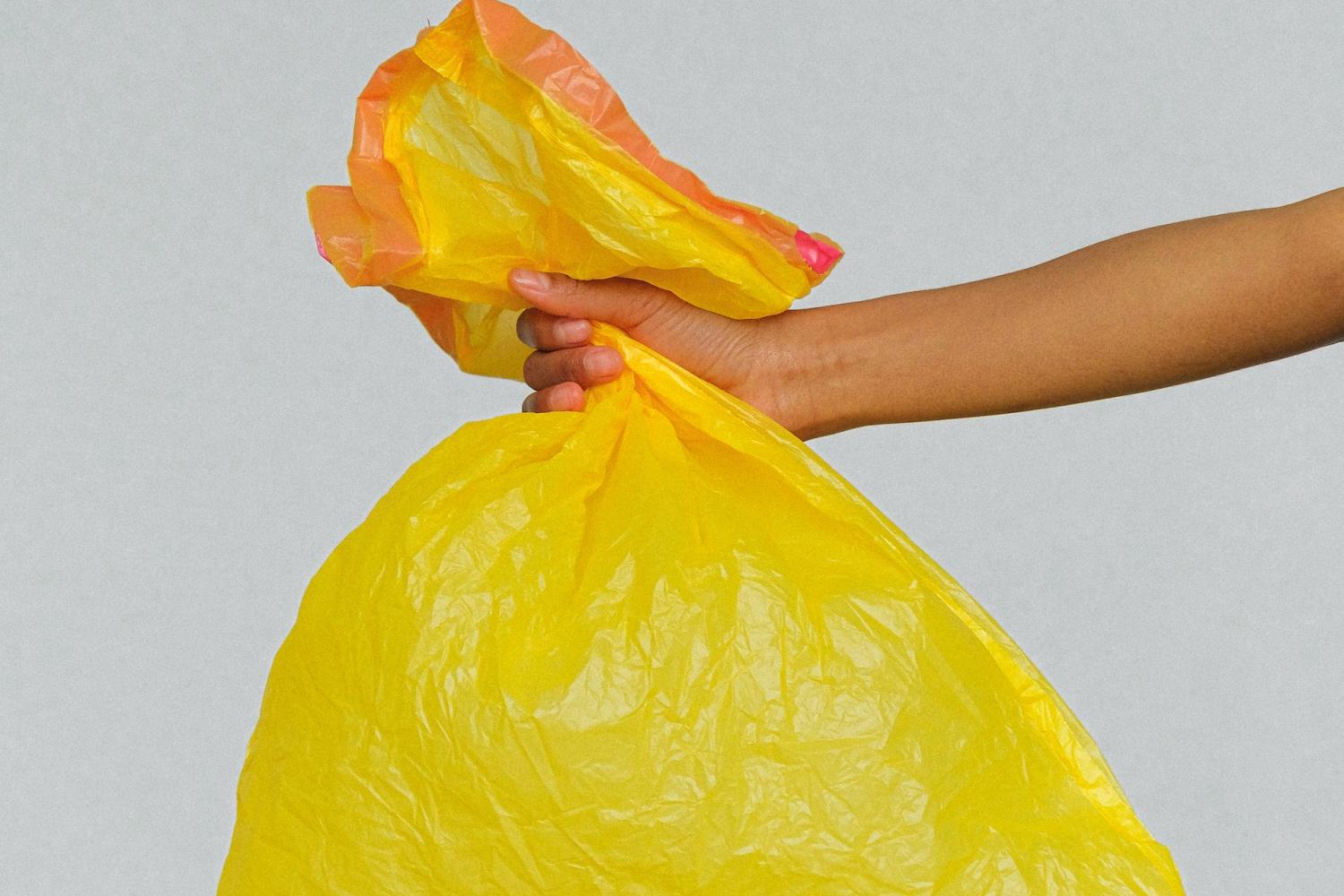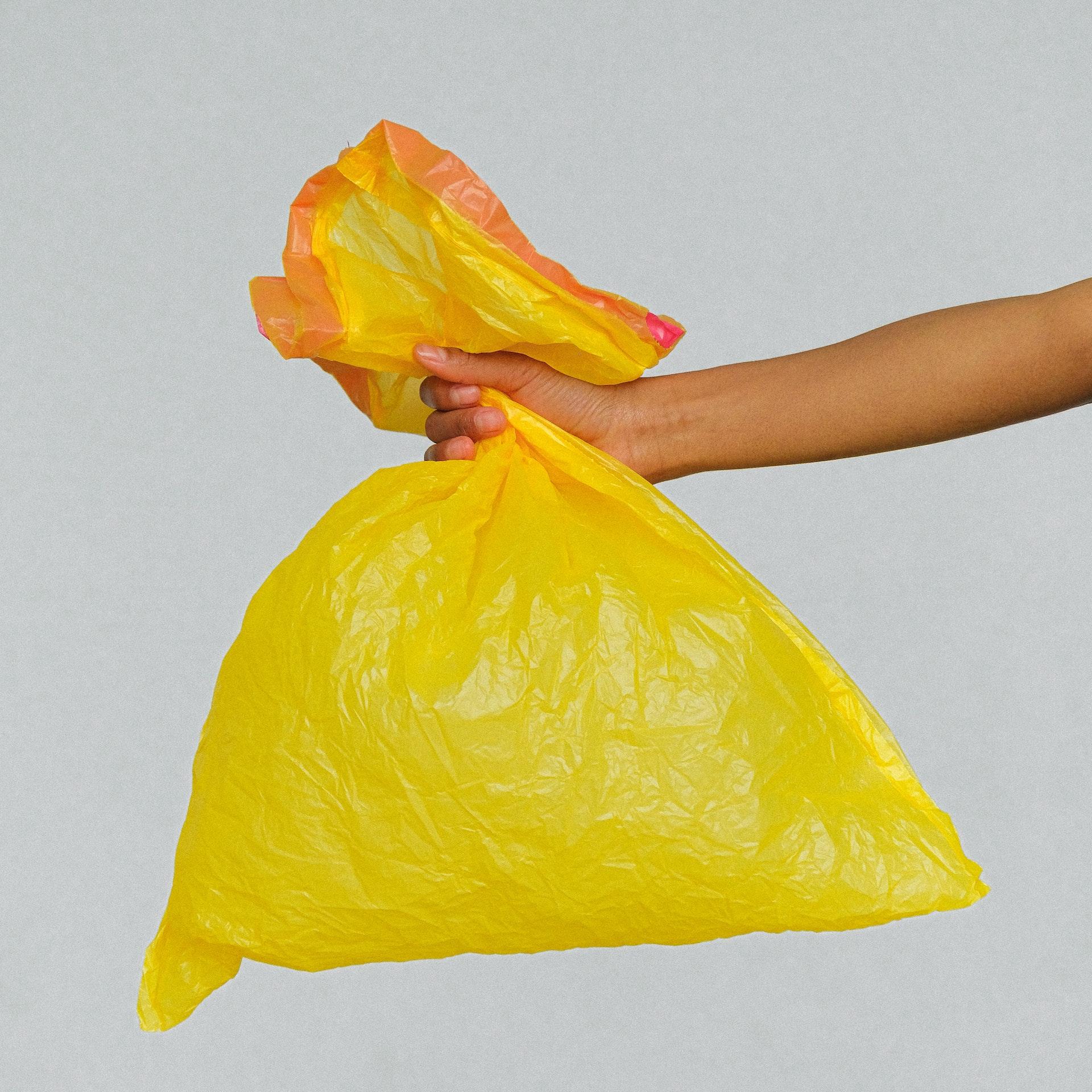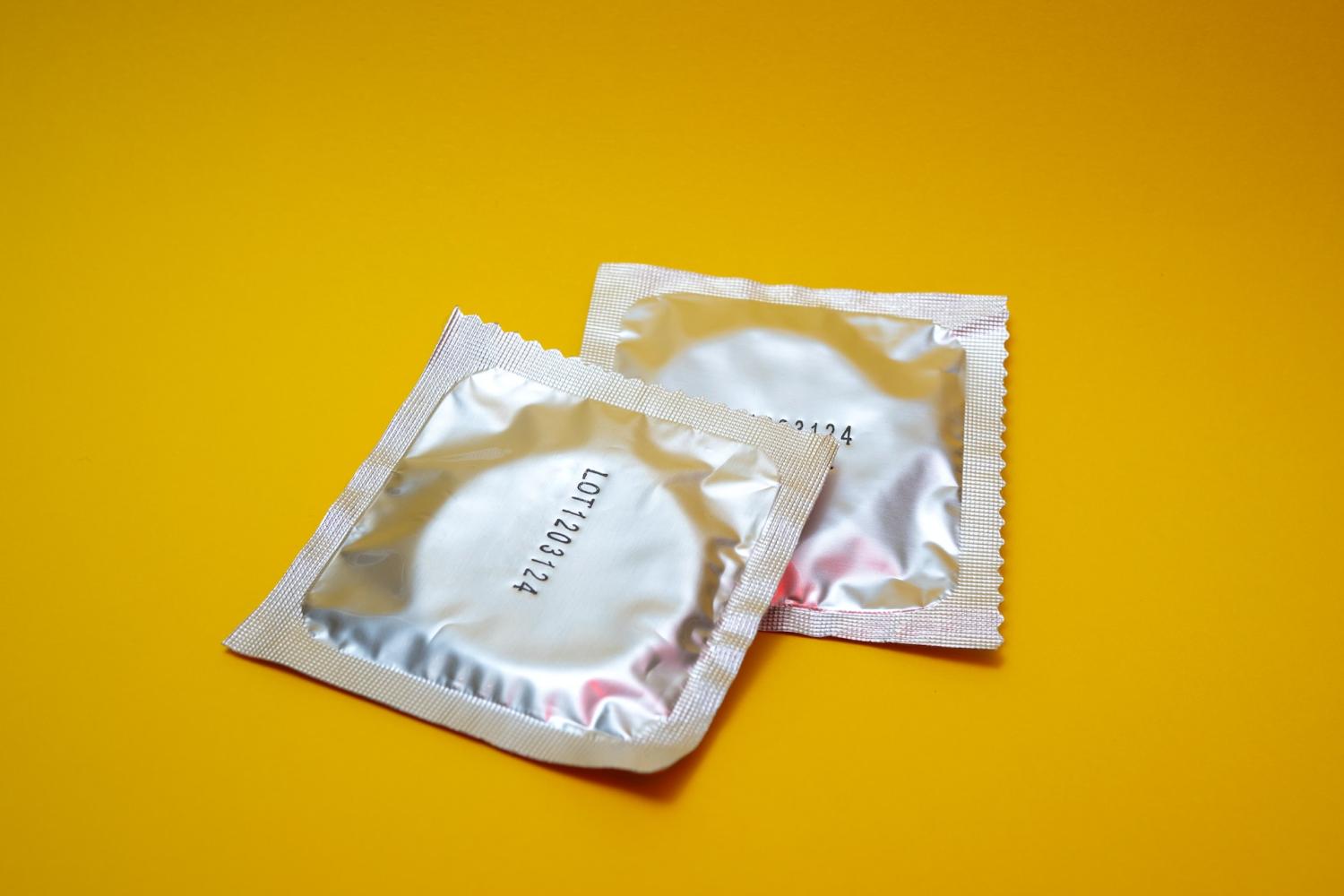The Five Driving Forces of CSR: Can You Name a Sixth?


I take little credit for the intelligence of this post. Indeed, I give all that might be due to Werther & Chandler’s 2011 text, Strategic Corporate Social Responsibility: Stakeholders in a Global Environment, as well as to my Green Mountain College MBA Triple-Bottom-Line Management Course, in progress. Through these studies, the five below drivers have been articulated as those most germane to the promotion of CSR, but I ask you, my favorite TriplePundit readers, are there others? Have motivating factors been missed? What else has brought us here, to this CSR "Tipping Point"?
The Five Driving Forces of CSR
- Increased Affluence: CSR becomes more relevant as economies grow and stabilize. Therefore, the greatest attention to CSR is found in developed countries. Stable work and security provide the luxury of choice and socially responsible activism. No such luxury exists when basic needs are in question.
- Ecological Sustainability: Perhaps the most obvious and most talked about of the drivers, concerns over pollution, waste, natural resource depletion, climate change and the like continue to fuel the CSR discussion and heighten expectations for proactive corporate action. After all, it is in the best interest of firms to protect for the sustainable future the long-term availability of the resources on which they depend.
- Globalization: Globalization has had considerable impacts. First, the increased wealth and power of multinational corporations has led to questions on the decreased authority of the nation-state, especially in developing areas. Further, cultural differences have added to the complexity of CSR as expectations of acceptable behavior vary regionally. With increased power comes increased responsibility and globalization has fueled the need to filter all strategic decisions through a CSR lens to ensure optimal outcomes for diverse stakeholders.
- Free Flow of Information: Yes, blame the bloggers, but through the Internet and other electronic mediums the flow of information has shifted back to the stakeholders, especially in the case of three important groups: consumers, NGOs and the general media. Easily accessible and affordable communication technologies have permanently changed the game and only truly authentic and transparent companies will profit in the long term.
- The Power of the Brand: Brands are today the focal point of corporate success and much of the health of the brand depends on public perception of the corporation. In other words, reputation is key and honest CSR is a way to protect that reputation and therefore the brand.
As reported by the aforementioned text, Malcolm Gladwell referred to the tipping point as the point of critical mass after which an idea spreads widely and becomes generally accepted and broadly implemented. I argue that CSR has reached such a tipping point, pushed there by the five above factors. I further argue that CSR will become more mainstream and more part and parcel of everyday business strategy. These five forces have brought us here and will continue to promote and develop trends towards greater social responsibility on the part of firms. But, are there others? Factors that have not here been considered that have or will prompt this continued CSR evolution?
Image credit: Morgan Sessions/Unsplash
The Market Failure of Plastic Bags


This post is part of a blogging series by economics students at the Presidio Graduate School's MBA program. You can follow along here.
By Jourdan Phillips
Plastic bags were initially introduced to the US market in the 1950s for packaging items such as bread loaves. In the 1970s, product utilization went mainstream as a shopping carrier bag to rival/replace paper bags. Plastic bags were viewed as an environmental salve to the paper bag shortages and environmental logging concerns that filled the Mid-1970s to Early 1980s. For thirty years, demand soared as plastic bags offered consumers a “one and done” product usability. With plastic bags having a marginal cost to retailers and a perceived zero cost to the consumer the product proliferation without market restraint led to a Tragedy of the Commons. As plastic bag use spread globally their negative externalities began to emerge; reports of littering, lack of biodegradability in landfills, ocean contamination and other environmental pollutants began to crop up. An intended utilitarian good quickly turned into a non-disposable consumer good.
At first, there were attempts to create a market in property rights to control the impact of plastic bags on the environment; retailers created recycling programs to take back the bags and some even had a deposit refund associated with their return, but the reform didn’t take. Consumers just don’t recycle their plastic bags. Without the market of plastic bag recycling, plastic bags became a common good that was over-exploited by the consumer and the supplier without proper disposal. Plastic bags became a market failure. The EPA states that today the United States alone currently uses around 380 billion plastic bags annually; less than 10% of these bags get recycled. Vincent Cobb, President of reusablebags.com described the plight of plastic bags , “[They] are a brilliant product but they are a victim of their own success. They’ve been perceived as free when they have a real cost to the environment and to consumers.”
Until the start of the 21st century, the social cost was hidden and economic cost was thought to be null, that is until the San Francisco Department of the Environment (SFDOE) put a price on the cost to “cleanup the commons." In 2004, the SFDOE released a study of estimated costs for clean up and landfill processing of plastic bags at 17 cents for each bag. For San Francisco, this adds up to $8.5 million in costs to clean up the over 100,000 plastic bags found annually in the waste stream. To correct the negative externalities caused by plastic bags, governments had two options: command and control regulation (bans) and direct price intervention (fees and taxes). In 2002, Ireland, by way of environmental taxation, and Bangladesh, via a regulatory ban, were the first nations to introduce government policy on plastic bags. Today over 140 cities, states, and nations have implemented a form of plastic bag reduction policy.
With a reduced demand for plastic bags, suppliers followed the trappings of “see a need, fill a need” product development. Reusable bags were quickly championed as the new right way to transport our harvest. The benefits over plastic bags were quickly apparent; they reduced litter, were cost-effective and, used continuously, - are environmentally effective. The number of reusable bag imports to the U.S. rose from 100 million in 2000 to half a billion in 2010. With over 3.3 billion bags imported to date and the U.S population at just over 311 million, we have already exceeded “a few per person” utilization.
Plastic bags were a market failure because they couldn’t satisfy any of the three R’s: reduce, reuse, and recycle. Where plastic bags failed at recycling, reusable bags must triumph at their intended design. There is a potential Catch-22 that may ensue around reusable bags if they aren’t able to transcend the same market failure mechanisms that plagued the plastic bag. As consumers purchase numerous reusable bags and/or collect free ones from retailers, the bag inventory in-house starts to accumulate. It remains to be seen if consumer behavior around bag reuse will adapt fast enough to impose market control on the scale of reusable bags. Should the stockpile of reusable bags begin to seep out of kitchen cupboards and car trunks and into our landfills and roadsides, it is possible that a repeat offense of negative externalities will be seen in this new generation of carrier bags.
Image credit: Anna Shvets/Pexels
Trek To Recycle Carbon Fiber Bikes


Though on the one hand the bicycle is perhaps the most basic form of transportation, on the other, it's possible to spend several thousands of dollars on a bike made from the lightest, most high performance composite aerospace materials available.
Manufacturers of high performance bikes have sought frame materials for lightness, strength, and comfort that also provide the necessary stiffness to maximize the power transfer from the rider to the road. In this quest, materials have evolved from steel alloys to aluminum, and then to more exotic materials such as titanium. Today, carbon fiber is the material of choice, meeting all the performance characteristics, while offering the benefit of being able to be formed into any shape the bicycle designer so chooses. However, while this aerospace material is great to build with, it has been problematic to recycle at end-of-life.
But Trek, in conjunction with Materials Innovation Technology (MIT), has implemented a solution to recycle carbon fiber scrap from its US facilities. This will make the material less of an environmental burden, diverting a projected 54,000 lbs of material from landfill to re-purposed use each year.
Gizmag reports that the material for recycling will come from manufacturing waste as well as non-compliant components, along with warranty returned frames. They also state the reclamation process will involve the process of pyrolysis, which entails heating the carbon fiber material in a virtually oxygen free environment, thereby removing the binding resins while leaving the fibers free for re-composition into new products.
The source material is chopped up first, which inherently shortens the carbon fibers, causing the recycled material to be less strong. In this regard, the recycling process is actually a down-cycling process. Bicycling.com quotes MIT's CEO Jim Stike as saying virgin carbon fiber may be used in aircraft, which gets reclaimed for car parts, which gets reclaimed for sporting goods which in turn may be reclaimed for computer cases. Down-cycling indeed, but nonetheless with many valuable iterations. In addition, Composites World suggests that recycled carbon fiber is 70% of the cost of virgin material, so it's cheaper if used in applications that don't not need maximal strength. As such, recycled carbon fiber should find a robust market.
However, all that said, Trek deserves for embarking on this program at all. According to Carbon Fiber Gear.com, Trek is incurring a cost to do this, but is proceeding as it deems it the right thing to to do. In terms of the business case, it's always better if a recycling process is economically justified. However, if Trek sees the future of the bicycle increasingly in carbon fiber terms, they can be applauded for making corporate social responsibility an important end to meet.
Image credit: Alejandro Lopez/Unsplash
The Sufficiency Economy: A Thai Solution to Economic Sustainability


This post is part of a blogging series by economics students at the Presidio Graduate School's MBA program. You can follow along here.
By Somsak Boonkam
The economy is a major force driving our lives, from the purchasing decisions we make to the public and private institutions we support. It determines how wealthy nations and their people are, and consequently becomes a determining factor for assessing quality of life. On the other hand, when the economy collapses, it brings us enormous devastation and takes wealth and prosperity back from the people. When an economy ceases to grow, it’s not easy --or maybe even impossible -- to bring it back to the state where it used to be. Suppose that we are lucky enough to see economic growth and prosperity again, how can we know that a collapse is not going to happen in the future? Maybe it’s time for us not to rely too heavily on conventional economic theories, but instead start to look for a more sustainable and effective economic strategy. The Sufficiency Economy might be a better solution for mankind to pursue and improve upon.
The Sufficiency Economy is a philosophy developed by King Bhumibol Adulyadej of Thailand through his royal remarks over the past three decades. The Sufficiency Economy is a happiness development approach, which emphasizes the middle path as an overriding principle for appropriate conduct by people at all levels. The middle path is a way of thinking in which no one lives tooextravagantly or too thriftily. It encourages people to live in a way where they consume only what they really need, choose products carefully, and consider their impact on others and the planet. The sufficiency economy enhances the nation’s ability to modernize without defying globalization – it provides a means to respond to negative outcomes caused by rapid economic transitions. This philosophy is a guide to making decisions that will generate outcomes that are beneficial to the development of the country.
Thailand values this new economics philosophy as a practical tool to effectively manage capitalism in a way that aligns and engages it with social sustainable development. In doing so, Thailand hopes that this approach will foster accountability and empower people and their communities. More importantly, the main goal of The Sufficiency Economy is to measure economic development not just using GDP, but also by taking the reduction of social inequality and poverty into account. This philosophy is also expected to help prevent another economic collapse such as the one that occurred during the mid-90s, and to be a powerful tool for moving the nation overall economy upward.
In this globalized world, we too often expect economic decisions to happen quickly without realizing that these hasty choices could adversely affect our lives and the lives of generations that come after us. It could also be argued that many of the past economic recessions resulted from the greediness and shortsighted decision-making of a group of bankers and executives. I believe that integrating the concept of The Sufficiency Economy into our worldview will give us a different perspective that promotes gradual development based on self-reliance and the principle of having “enough.” We would all do well to keep the three main tenets of this philosophy (moderation, reasonableness, and self-immunity) in mind as we try to change peoples' attitudes, behaviors, and way of living at both the micro and macro level.
Image credit: Flickr/Marko Mikkonen
The Employment Multiplier – An Important Tool For Promoting The Burgeoning Green Economy


This post is part of a blogging series by economics students at the Presidio Graduate School's MBA program.
By Eric Cetnarski
As one would expect from a Great Recession, much of American political and economic discourse has been focused on job creation. And despite signals of recovery, the unemployment rate still remains above 9 percent. Many Americans are still struggling to maintain their households – and as a result topics like ‘green-recovery’ and climate mitigation are not primary concerns. Americans want jobs – even if they come from traditionally ‘dirtier’ industries like fossil fuel extraction and production.
It is important that climate mitigation and green industry advocates bear this in mind when communicating their initiatives. Statistics like the employment multiplier can help these advocates tell a compelling story when courting working-class Americans and municipal governments.
What is An Employment Multiplier?
An employment multiplier is one of the measures used to determine the impact a particular industry will have upon a municipality when it arrives or departs. In its simplest terms, the employment multiplier measures the amount of direct, indirect and induced jobs created (or lost) in the area. Direct jobs are related to the specific industry, while indirect jobs are those that support the industry. Induced jobs are those that are a result of direct/indirect employee’s spending money in the community. Generally, industries with a higher multiplier are more desirable.
Fossil Fuel Extraction And Production Are Desirable Because They Create Jobs
According to the U.S. Bureau of Economic Analysis Industry multiplier data, coal mining has an employment multiplier of 4.4 - meaning that for every mining job, 4.4 other jobs are created. Oil and gas extraction have a multiplier of 6.9. As one can see, these industries can be viewed as a boon to communities. It can prove politically difficult to thwart the advances of the fossil fuel industry -- unless compelling clean energy options can be presented.
Green Energy Alternatives Are Job Creation Options
Like other traditional energy industries, green industry initiatives have the potential to significantly bolster a region’s economy. Activities like maintaining a large solar array or maintaining a smart-grid can be as labor intensive as extracting and processing fossil fuels. For example, the clean energy coalition Apollo Alliance reports that for every $1 million invested in smart grid installations, 5.2 direct and 7.9 indirect/induced jobs are created. There are a host of other studies that indicate green industries like renewable energy production create both direct and indirect jobs in the municipalities they are located.
Green Jobs and the Multiplier: Debunking Myths
Unfortunately many Americans still associate green industries with economic contraction and job loss. Traditional industries often confuse the public about green initiatives (e.g. California's 2010 Proposition 23). It is imperative that those in the green industries clearly communicate the economic benefits to communities - not just the environmental ones. If they don't, then most American’s will overlook the burgeoning green economy in favor of what they see as a ‘safe bet’ in traditional industry.
This misconception is neither good for our economy nor our environment.
***
Eric Cetnarski is earning his MBA so that he can harness the power of business to provide more sustainable production and purchasing options to consumers and businesses. He believes profound social and environmental change can manifest from the consumer.
Image credit: Pixabay
Step One, Population Control


This post is part of a blogging series by economics students at the Presidio Graduate School's MBA program. You can follow along here. 
By Jonathan Gibson
Sustainability is all about fundamentals; it’s about fairness, equality, responsibility, and paying as we go. Underlying these fundamentals is the supply and demand of resources. With fixed world resources, we humans are forced to limit demand for these resources through population control. Rising populations around the world imply our well-being per person is steadily declining.
As controversial as it may be, all world-citizens need to consider population control as a means to sustaining each of our families, tribes, streams, rivers, oceans, food stock, and our livelihood. Fewer people will result in more of us meeting our basic needs including health, jobs, and greater prosperity for everyone. We must take action to control the world population.
Consider if you will the impact of more people on the earth, on health, and on the economy. In all cases, the more people we have, the more constrained our resources are. The more people we have, the more environmental resources required to sustain them, the more potential for spread of disease and the fewer resources we have to fight disease, and the less nourishment each person is able to receive. From an economic perspective, the fewer people we have the more resources available to share (see China’s example here).
Generally, healthier people are able to work more productively and may even be able to get better jobs given a healthy persons relatively greater ability to perform well at any given job. Controlling populations is typically accomplished by simple, low cost solutions such as education and contraceptive services.
Education materials and curriculum, usually taught in primary schools, are straight-forward and are often provided for free by not-for-profit groups. Additionally, contraceptive products and services, such as condoms and counseling, are low-cost and relatively much cheaper than raising a child. The biggest hurdles to implementing these solutions are cultural and political opposition. First of all, women’s rights are often limited in developing countries where population control is arguably the most important issue. In some places government policies may restrict education and availability of contraceptives.
To spread this critical population control message responsible global-citizens ought to appeal to people’s own needs; health, jobs, and economic gain. In order to broaden the coalition for population control, our sales pitch must emphasize the greater prosperity of fewer people. The result is better nourishment, better health, and more wealth per person. Showing people “this is better for you” will convince them to adopt population control practices.
Government policies are of primary importance. The following companies, which have made profitable businesses selling condoms throughout the world, may be used as examples to governments: Church and Dwight – Trojan (Stock, Website), Reckitt Benckiser – Durex (Stock, Website), Ansell – Lifestyles (Stock, Website).
While the contraception industry is a high-capital business, its operations produce high-volume and low-cost products. Governments have the ability to increase their citizen’s wealth by adopting population control measures and reducing the contraception industry’s highest barriers such as quality certification, brand development and awareness, and access to distribution channels. All of us are responsible for the well-being of ourselves and future generations.
We must start acting to limit population growth so as to maximize our own well-being. To spread this message we must appeal to people’s selfishness, the human tendency to act based on prospective personal gain. By appealing to governments, businesses, and citizens, we can create shared benefits and make the world a better place. Let us all get back to basics and remember to pass-along this population control message wherever we go.
Jonathan Gibson is currently pursuing his MBA in Sustainable Management at Presidio Graduate School in SF, CA. Please contact Jonathan regarding sustainable business opportunities, or to discuss this article, at [email protected].
Image credit: Reproductive Health Supplies Coalition/Unsplash
Tom's of Maine Ditches the Aluminium Toothpaste Tube


You may have noticed something new in the toothpaste aisle, and it's not an even more elaborate toothbrush. Tom's of Maine recently changed the tube your toothpaste comes in from the much loved, and apparently, much maligned aluminum tube to a more mainstream plastic laminate. The aluminum toothpaste tube was the original environmental packaging and I was eager to get to the bottom of the switch.
Tom's of Maine had long maintained that aluminum was the material of choice for toothpaste tubes because of its recyclability. I feared that the switch was related to Tom's relationship with it's parent company Colgate-Palmolive. I'm pleased to report that Colgate-Palmolive had nothing to do with the change in materials. Rather, the decision came after a careful review of a decade of consumer comments and a reevaluation of the assumption that aluminium was the most environmentally friendly material available.
Why the switch?
When viewed in aggregate, 25% of packaging complaints about Tom's products were related to the aluminium tube. Customers complained of cracks and splits that caused the product to leak. Parents complained that the tube was too hard for young toothbrushers to use; older customers had the same difficulties.
Says plant manager Bill Hetzel, "we had taken it as an indisputable fact that aluminium was the best material available, because of its recyclability, but the customer complaints challenged us to reconsider. We looked into the life cycle of our toothpaste tubes and realized that they weren't actually being recycled as often as we'd like, and even if the tubes made their way to recycling facilities many would not accept them because of the plastic caps attached."
The decision to move to more conventional packaging was not taken lightly. The customer comment review process took several years, and once the company determined that aluminium was out, the selection of plastic laminate and the factory switchover took about a year. Says Ellen Saksen, Toothpaste Brand Manager, "as a Tom’s of Maine employee, one of the first things you learn is to seek council. Over the course of the decision making process, we had hundreds of meetings. We needed to make sure the change was was right for the consumer and right for the company. Our stewardship model is very detailed. Consumers are hard on us, we welcome that, and we’re hard on ourselves."
Why plastic laminate?
Once aluminum was off the table, the field was wide open. The company considered biodegradable plastics, paperboard, and many other materials.
Because some of Tom's of Maine's toothpastes contain fluoride, the company is under strict FDA regulations about tube materials- they have to be very durable and pass rigorous testing. After much consideration, plastic laminate was chosen because it meets the FDA standards and because it is a lot lighter than aluminium. The weight of the product is key because it means the transport of the product has a much lower carbon footprint than the old aluminium tubes.
The tubes are also a lot more flexible and easier for little hands to squeeze.
Where is it sourced?
Tom's selected a tube manufacturer a truck drive away from its factory in Maine. The manufacturer was carefully selected for its focus on sustainability- a value shared by Tom's of Maine. The manufacturer recycles scraps from the manufacturing process and accepts Tom's of Maine's tube waste. Damaged tubes and the tubes returned by customers are returned to the manufacturer so that they can be incorporated into the downcycling stream. The recycled material is used mostly in industrial applications like bumpers for pallets, but the company is continuously sourcing new ways to reincorporate waste into the product stream.
How have customers responded?
The response has been 10:1 positive on the switch. That one customer who expresses dissatisfaction is not a surprise for Ellen Saksen, "change is hard, especially when it comes to a product you use every single day."
What's up next?
The toothpaste team is looking for better ways to recycle the new packaging. They're also working with distributors to get rid of the cardboard cartons that surround the tubes. Kids toothpaste is already sold without a carton and the adult versions are next in line for dematerialization.
The company has also funded research into bio-plastics. The most promising project on tap is one that incorporates local Maine potatoes into the packaging.
Image credit: Tom's of Maine via Facebook
American Apparel: Sustainable Brand Image vs. Sexual Harassment


This post is part of a blogging series by marketing students at the Presidio Graduate School's MBA program. You can follow along here.
By Ariel Raymon
Once again, 41 year old Dov Charney, CEO of the LA based t-shirt selling empire, American Apparel, a company whose brand is built on providing fashionable clothing manufactured in a “sweatshop free” environment, is being sued for sexual harassment. With five women making sexual harassment complaints last month against the CEO, the company image is slowly becoming an ironic representation of exploitation.
In the eyes of some entrepreneurs, Dov Charney is a hero for building a successful apparel company in the US without compromising his commitment to providing fair labor practices. Operating in a market where most clothing is outsourced to China, not only does Mr.Charney pay employees almost double the state regulated minimum wage, he provides them with health insurance, subsidized lunch, free parking, well lit and ventilated working conditions, and paid time off to take English classes provided on site. When the company went public in 2008, employees received an average of 500 shares each, worth about $4,500. In a saturated market where 97% of apparel products sold in the US are outsourced for production, Dov is committed to making all American Apparel products in his factory in downtown Los Angeles. With “the highest-paid apparel workers in the world," he has received praise from anti-sweatshop activists for being a leader in providing fair treatment to garment workers in the US.
On the other hand, Mr.Charney’s unorthodox business practices and provocative advertising techniques have been the subject of controversy among his young, urban, twenty-something target audience. After getting sucked into the catalogue for a minute, I noticed the ads are more like soft-core porn than an advertisement for a product. Dov claims to use many of his sales associates as models in his advertising and explains that he does much of the photography himself. Additionally, the CEO is open about having sexual relationships with some of his employees, and often holds work meetings in his bedroom. To me, his behavior is blatant admittance of crossing into a PR nightmare.
Dov’s actions communicate mixed messages to consumers. As the public face of the company, he suggests that he cares about workers rights, but continues to be charged with sexual assault and harassment charges. This contradictory approach regarding treatment of American Apparel employees is a double standard. From a business perspective, his actions pose a serious risk to the integrity of the company, and the board should oust him. Furthermore, this is the perfect opportunity for American Apparel to re-brand. As an informed consumer, I associate the sexually provocative ads with sexual assault. Moving from trashy, exploitative advertising, into a classier aesthetic may help disconnect Dov’s actions from the brand, helping the public to realize that American Apparel’s core mission is to provide fashionable, garments in an environment that fosters fair labor practices.
But in the meantime what do socially responsible, concerned consumers do?
Image credit: Sherwin Huang/Flickr
How to Make Nuclear Energy Safe


By Pankaj Arora
When you’re sitting on an archipelago with more than 100 volcanoes and a unique cross-section of tectonic plates underneath, the 54 odd nuclear reactors, the possibility of disaster starts to look like a "when" rather than an "if."
The 40 year old Fukushima reactor was built in the 1970s, when Japan’s first wave of nuclear construction began. Since the power back up failed in the disaster international attention has been drawn to nuclear energy and its designation as a clean fuel.
Tens of thousands of people in Germany formed a human chain recently to demonstrate their fear of and opposition to the nuclear power. The protesters urged the state to learn from the Japanese disaster and reconsider nuclear.
Prior to the earthquake in Japan, a nuclear renaissance was emerging worldwide. Now more than ever, nervous consumers will demand increased safety standards, more rigorous planning, careful checklists and increased transparency in the whole nuclear political system.
Planning for safe nuclear energy
There are 3 major challenges to be overcome with nuclear power:
- Problem of nuclear waste disposal and recycling
- Radiation hazard
- High cost and high capacity installation over long time frame
Good strategic planning raises awareness about potential threats and opportunities. Many feel that it is still a clean, safe and cheap way to supply energy with a relatively good track record – only 3 major accidents over 14,000 reactor hours of experience in 32 countries – 3 Mile Island, Chernobyl, and Fukushima. TheWorld Nuclear Association) tells us that one was contained without harm to anyone, the next involved intense fire without provision for containment and the third severely tested the limits of containment. The Association also lays out an approach of Prevention, Monitoring and Action - which works best with high quality design and construction.
Stewart Brand, a long standing proponent of nuclear power called nuclear a ‘design problem’ which can be fixed. He says, “Radiation that looks like a great evil in basically a design problem. Nuclear provides a clean base load electricity that produces waste just a size of a coke can as compared to a coal fired plant that belches out 16,000 tons/year of CO2 emission for the same power supply. It needs to be made safer so that each state, each province can run its own modular and thorium power plants that can be carried on trucks, require no refueling and can be run for 60 years and then be buried in their own grave.”
Dr. James Hansen, Director at NASA Goddard Institute of Space studies, the most popular pro-nuclear advocate, in an interview with the Bigthink website, proposes that renewable energy is still very expensive and doesn’t provide consistent base load energy. The current second generation nuclear plants have technical problems that third and fourth generation reactor designs can overcome - like the full use of nuclear waste - but such designs will come in the next 10-12 years.
Proper planning with advanced design of nuclear reactors is what is needed to move ahead with the nuclear agenda.
Nuclear security is the most essential element of safe nuclear. According to the International Atomic Energy Agency (IAEA) nuclear security plan can be achieved through "prevention, detection of and response to malicious acts, and Information coordination and analysis.
Proper nuclear security protocol will include:
- Potential hazard to the local community. Choosing appropriate geological locations to construct the power plants.
- Strong Regulatory infrastructure to promote harmonized safety standards
- Total cost of the reactor – including the CO2 emissions released in the initial construction
- Total time taken to build the reactor
- Installed capacity to be high as only then the costs can be justified
- Involvement of all stakeholders – Electric power companies, local and central government, scientific community, banks and general public
- Nuclear waste – either to be buried in deep saline formations or be recycled back into the reactor as currently done by France and Japan
- Security and terrorism
- Decommissioning
Transparency
The Fukushima incident has called for increased transparency in the public and private sector, as the plant’s operator Tokyo Electric Power (TEPCO) received severe scrutiny from the international community because of the problems at the reactor.
Conflicting views prevail in the mainstream - on one end of spectrum are people like James Hansen, Stewart Brand, The World Nuclear Association and on the other are people like Al Gore who brought mass awareness to the world about global warming and activists like The Greenpeace opposing nuclear as dirty, expensive, unsafe and a threat to world peace. This presents a confusing picture to the masses.
What's next
The risks of a nuclear blow out are immense and can’t be discounted. The dangerous, risky and the poisonous effects can last forever. Even Japan’s Fukushima incident hasn’t done much to stall other countries' expansion of nuclear power. The International Herald Tribune stated that – China has 11 operational reactors and 10 new ones in the making, and India has 20 current and plans to build dozens in the future – and so are countries like Italy, Russia, Czech Republic, and middle-eastern countries like UAE, Jordan, Bahrain also sticking to their nuclear energy policies. About 3/4th of France, 1/3rd of Japan and 1/5th of US is powered by nuclear power. Even Japan plans to move ahead with its 60% goal of going nuclear in the coming years.
Nuclear energy is one step up from the fossil fuels – at least you know your hazard in nuclear reactors – coal plants externalizes the emissions on the society. The world is heading to nuclear, no doubt – the question is how good can we get on our designs and transparency system that can act as transitionary technology leading into the world of sun and wind. If the right parties sit at the discussion table with a set of appropriate checklists and common goals, which will bring higher transparency, accidents and radiation hazards, can be controlled, thus touting its claim as a clean, sustainable energy source of the future.
Pankaj Arora blogs at http://environz.org/ and is passionate about sustainability and believes that however we may call it, one thing is a given - it’s huge and it’s everywhere, slowly shaping our lives. He is also an Engineer and is studying MBA in Sustainable Management.
Image credit: Unsplash
Top 10 Climate Change Strategy Consultancies


Despite the weak regulatory environment at the federal level in both the U.S. and Canada, there is growing demand for helping executives understand how to mitigate climate change at a profit. This demand comes from local regulation, such as California’s cap and trade program and Ontario’s regulation phasing out coal-fired power plants, and other drivers such as the desire to increase efficiencies or the need to meet increasingly stringent supplier requirements, such as those from Walmart.
A few weeks ago I wrote about the top Executive MBA programs promoting profitable solutions to climate change, something I refer to as Climate Capitalism.
This week I’d like to look at companies offering strategic consulting services to assist companies identify climate capitalism opportunities. I used a range of sources for this research including: this research from Verdantix, other related articles, and direct email and phone conversations with some of the top contenders. Also I relied on my own experience working the past few years in the carbon markets to provide some guidance.
This top 10 list is based on a few criteria such as a focus on climate strategy and the years of experience the consulting firm has with the provisioning of strategic management services in the area of climate change. I also looked for thought leadership in the space. Hopefully this list helps aspiring climate capitalist job seekers to identify potential employers, and also provides some guidance to corporations seeking climate strategy guidance. (The list is in alphabetical order as I was not able to truly distinguish amongst these leaders)
1.) AT Kearney. Like McKinsey & Company, AT Kearney has a long track record of success in business and strategy consulting. In fact, their predecessor was founded in 1926, the same year as McKinsey (below). AT Kearney, in recent years, has begun to move into the environment and climate change arena. Their sustainability group offers sustainability strategy, product and service optimization and sustainable supply chain consulting. AT Kearney of course is active in thought leadership in the areas of sustainability and climate change strategy and practice.
2.) Blue Skye is a niche sustainability strategy consultancy that deserves to be mentioned here. While only founded in the past 10 years (2003), they have quickly built a name for themselves by providing quality sustainability consulting. In their own words, Blue Skye uses “the lens of sustainability to create new, innovative, wealth-creating strategies. We reframe, restage, and reshape "corporate, social, and environmental responsibility" to be an opportunity, not an obligation.” Turning environmental and climate change challenges into business opportunities is what this whole series in Triple Pundit is about.
3.) ICF International does not have the same ubiquitous brand recognition that companies like AT Kearney and McKinsey have but it definitely has an impressive track record in climate change consulting. Their climate group: “helps public- and private-sector clients worldwide develop climate change policy, interpret and comply with regulations, reduce greenhouse gas (GHG) emissions, evaluate risks, and identify opportunities.” Carbon Finance Magazine has rated ICF the Best Carbon Advisory/Consultancy five years in a row.
4.) McKinsey & Company Consulting. When it comes to strategic management consulting services of any type, it is hard to argue with McKinsey. McKinsey was founded in 1926 and has regularly been at the top of the rankings for strategic consulting work. This gives them an advantage when they decide to apply their expertise to emerging fields like climate change. Their sustainability group is quite active in thought leadership and consulting in areas such as carbon management, the economics of climate change and water issues associated with climate change.
5.) PwC, formerly known as Price Waterhouse Coopers, like McKenzie and AT Kearney has a long track record of strategic and business consultancy expertise dating back to the founding of its predecessors in the 1800’s. Their Global Sustainability practice has over 700 sustainability and climate change consultants and has “been advising policy makers and business on climate change since 1997, helping them to analyse issues and develop practical solutions to the challenges they face.”
6.) SustainAbility. Like Blue Skye, SustainAbility is a niche sustainability consultancy with a strong focus on strategy and an emerging practice in climate change. Their climate change strategy practice focuses on “Developing strategic responses to the risks and opportunities posed by climate change.” Recent clients in this arena include Shell and Ford Motor Company.
Others that would surely enter in anyone’s top 10 list include, 7.) Strategy& (formerly Booz & Company), 8.) CH2M HILL, 9.) Deloitte, and 10.) GreenOrder.
Trillions of dollars will be spent in the next decade on low carbon solutions across every sector of the economy. With that kind of money on the line, you can bet that there will be a growth in demand for consultants who can read a balance sheet, articulate a business case, and understand technology trends, regulation and other drivers associated with the transition to the low carbon economy. If you are looking for a job like this or a company that excels in this area to provide consulting to your business, these top 10, and many others are a good place to start your search.
Image credit: Pexels